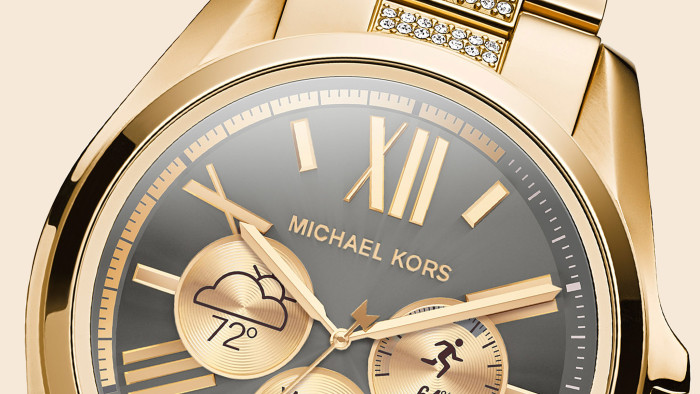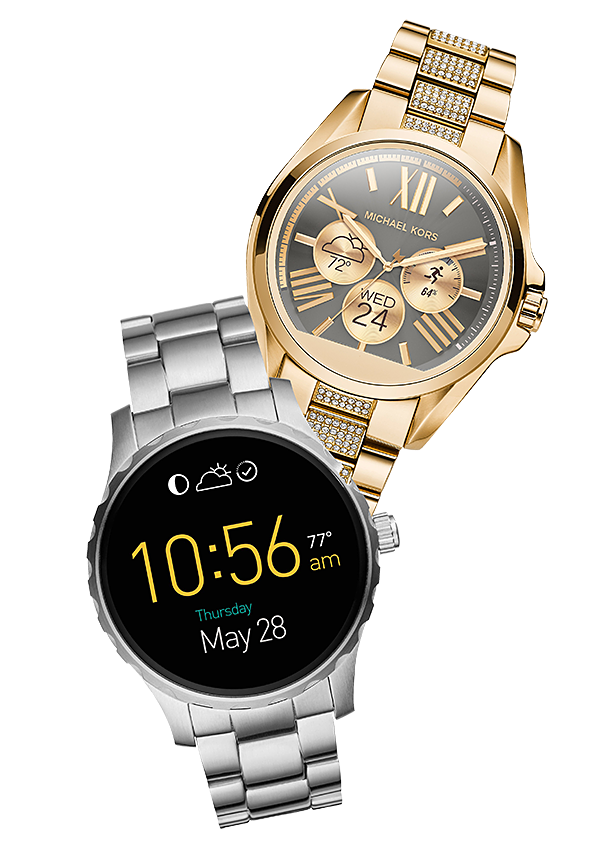Fossil to flood the smartwatch market

Roula Khalaf, Editor of the FT, selects her favourite stories in this weekly newsletter.
The market for smartwatches is worth billions, but not everyone is convinced they are here to stay. “Most people lose interest in them pretty quickly once they figure out they take the same number of steps each day and get the same miserable sleep each night,” says Omar Saad, head of luxury apparel at Evercore ISI investment group.
“It’s a product that people wear for a few weeks and then drop. When they realise they’ve got to charge it every night, it just sits in a drawer,” says David Coleridge, chairman of UK retailer the Watch Gallery.
This scepticism is why a big move by Fossil Group — which makes watches under its own brand and for designer companies such as Armani Exchange, DKNY and Marc Jacobs — is all the more interesting, and risky. Having spent $260m last year on Misfit, a wearable activity-tracking company, and having formed a partnership with Google for its Android operating system, Fossil will be launching 100 smartwatch models under eight different brands this summer. At stake is not just one business’s sales but whether a permanent place for smartwatches in the broad market will be established.
Sales of smartwatches have grown quickly over the past few years, rising from worldwide revenues of $943m in 2013 to $12.5bn in 2015, according to Euromonitor. Volumes are expected to jump 66 per cent to 50m units this year.
Fossil Group will not say how many it expects to sell, but Greg McKelvey, chief strategy and digital officer, says he will be “scaling the business to sell millions and millions”, adding: “We will reinvent watches.” He also sees smartwatch purchases as a way for consumers to be introduced to new brands.
Mr McKelvey’s enthusiasm looks more ambitious in the light of Fossil Group’s latest market announcement: last month its shares fell 29 per cent in a day when it said it expected full-year earnings of $1.80-$2.80 a share instead of $2.80-$3.60, an earlier forecast.
Fossil will bring to market smartwatches, fitness trackers and hybrids — a regular analogue watch with some basic connected features built in — under its own brand and those with which it has a licensing agreement, such as Diesel and Michael Kors. Fossil-branded fitness trackers will retail from $95, the hybrids from $175 and the smartwatches from $275, while wearables from brands in its licensing agreements will retail at a higher premium.
The mid-market has been poorly supplied with smartwatches, with most products priced more expensively. TAG Heuer says it has sold more than 20,000 Connected smartwatches, priced at $1,500, since it launched the product in November, while analysts estimate that Apple sold 1.6m Apple Watches, which start at $349 and rise to $17,000, in the first quarter of 2016.

Industry experts have decried smartwatches for their excessive bulk, constant buzzing and poor usability; fashion labels hope to make smartwatches slimmer and sleeker, and therefore more desirable.
John Idol, chief executive of Michael Kors, thinks that the coming together of fashion and technology represents “a tremendous growth opportunity” and that “over the next five to 10 years, most fashion watches will be sold with some type of wearable technology”.
Commentators believe hybrid models, which include a chip to record steps or vibrate when your phone receives a notification, are the most likely to break into the mainstream.
Paul Lamkin, editor of connected device blog Wareable.com, says: “It’s also not that expensive to put the connected technology into a regular watch, and by next year I think we’ll have [hybrid] connected watches and jewellery in places like Claire’s Accessories. If you can buy a watch and pay just a pound extra to have it buzz when your phone rings, why wouldn’t you do that?”
Comments